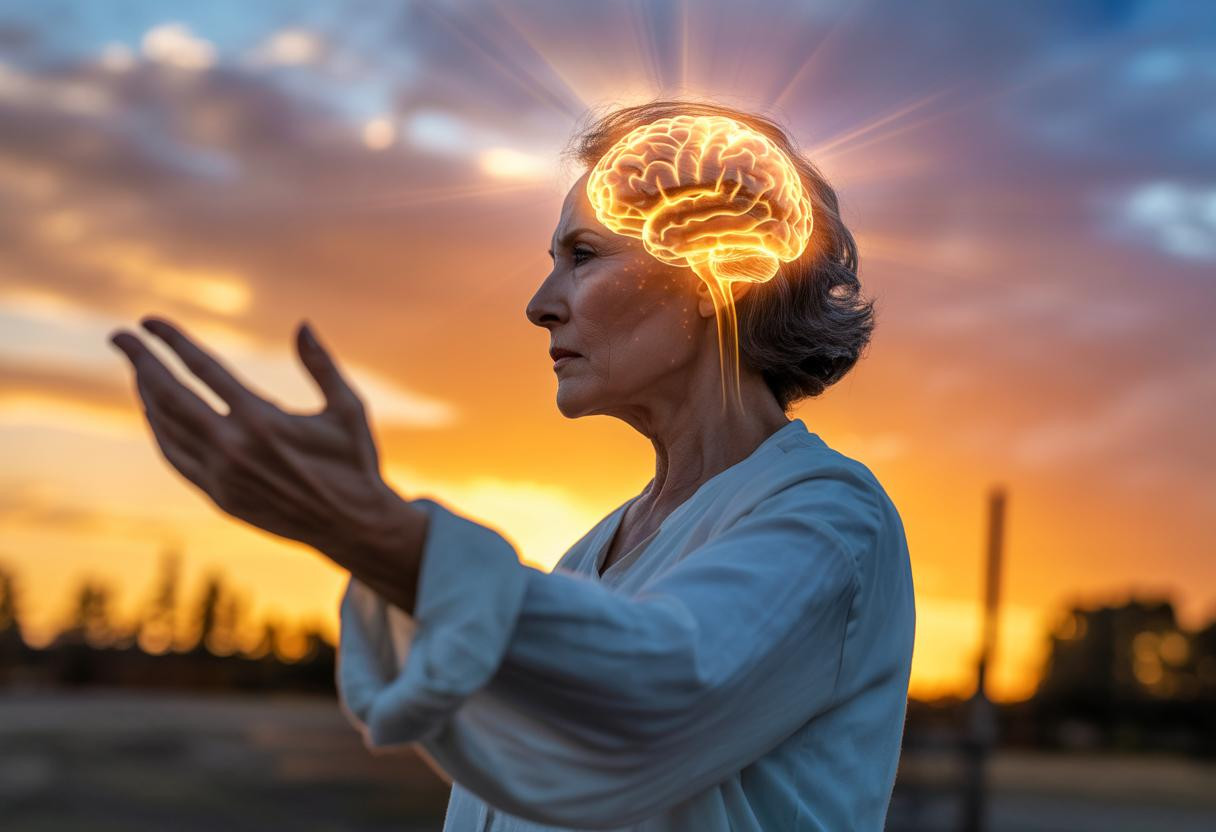Recent neuroscience research reveals that Tai Chi creates unique brain changes that traditional exercise simply cannot match, with studies showing dramatic improvements in memory, decision-making, and cognitive flexibility that extend far beyond what walking or standard fitness routines achieve. This ancient practice appears to rewire the aging brain in ways that could revolutionize how we approach cognitive health after 50.
The neuroscience behind Tai Chi’s cognitive power
Unlike conventional exercise that primarily targets physical fitness, Tai Chi engages multiple brain regions simultaneously through its unique combination of coordinated movement, controlled breathing, and mental focus. This triple integration activates the prefrontal cortex, hippocampus, and temporal lobe in ways that create lasting structural changes.
Neuroimaging studies involving over 400 participants demonstrate that Tai Chi practitioners show increased brain volume and enhanced connectivity between critical cognitive regions. The practice stimulates the release of brain-derived neurotrophic factor (BDNF) and insulin-like growth factor 1 (IGF-1), proteins essential for neurogenesis and synaptic density.
Dr. Sarah Chen, a neuroscientist at Stanford Medical Center, explains: “Tai Chi’s synchronized movements create a unique form of dual-task training that challenges the brain’s executive function systems while simultaneously reducing cortisol levels that typically accelerate cognitive decline.”
Remarkable findings that challenge conventional wisdom
Memory enhancement exceeds standard exercise
A groundbreaking 40-week study revealed that Tai Chi boosts memory 23% more than walking after age 50, with participants showing measurably larger brain volumes on MRI scans compared to those who walked for exercise. The difference stems from Tai Chi’s ability to engage sensorimotor integration while traditional cardio focuses primarily on cardiovascular benefits.
Dementia progression dramatically slowed
Perhaps most remarkably, research on mild cognitive impairment patients found that only 2% of Tai Chi practitioners progressed to dementia compared to 11% in control groups. This 81% reduction in progression rate suggests Tai Chi may be one of our most powerful tools for preserving cognitive function in aging populations.
Executive function improvements
Studies measuring P300 event-related potentials show that Tai Chi practitioners demonstrate enhanced multitasking abilities and improved decision-making speed. The practice appears to strengthen neural pathways responsible for working memory, time management, and cognitive flexibility.
Why Tai Chi outperforms other exercises
The secret lies in Tai Chi’s multidimensional approach that simultaneously provides aerobic conditioning, muscle strengthening, balance training, and mindfulness practice. While intense training can dramatically improve brain age, Tai Chi offers sustainable, joint-friendly benefits that older adults can maintain long-term.
The practice activates what researchers call “neuroplasticity pathways” through its emphasis on precise coordination and mental concentration. This creates new neural connections while strengthening existing ones, essentially building cognitive reserve that protects against age-related decline.
Getting started with cognitive-focused Tai Chi
Begin with basic forms
Start with simple movements like “Wave Hands Like Clouds” or “Grasp the Bird’s Tail” for 10-15 minutes daily. Focus on slow, deliberate movements while maintaining deep, rhythmic breathing.
Emphasize mind-body connection
Unlike fitness-focused exercise, cognitive benefits emerge when you concentrate intensely on movement precision and breathing patterns. This mental engagement triggers the neuroplasticity mechanisms that create lasting brain changes.
Progress gradually
Build complexity over 8-12 weeks, adding new forms as coordination improves. The cognitive benefits compound over time, with most studies showing significant improvements after 6 months of consistent practice.
A new paradigm for brain health
Tai Chi represents a fundamental shift from viewing aging as inevitable cognitive decline to recognizing it as an opportunity for enhanced neural resilience through mindful movement. As research continues revealing its unique neurological benefits, this ancient practice may become medicine’s most powerful tool for maintaining sharp minds well into our later years.
